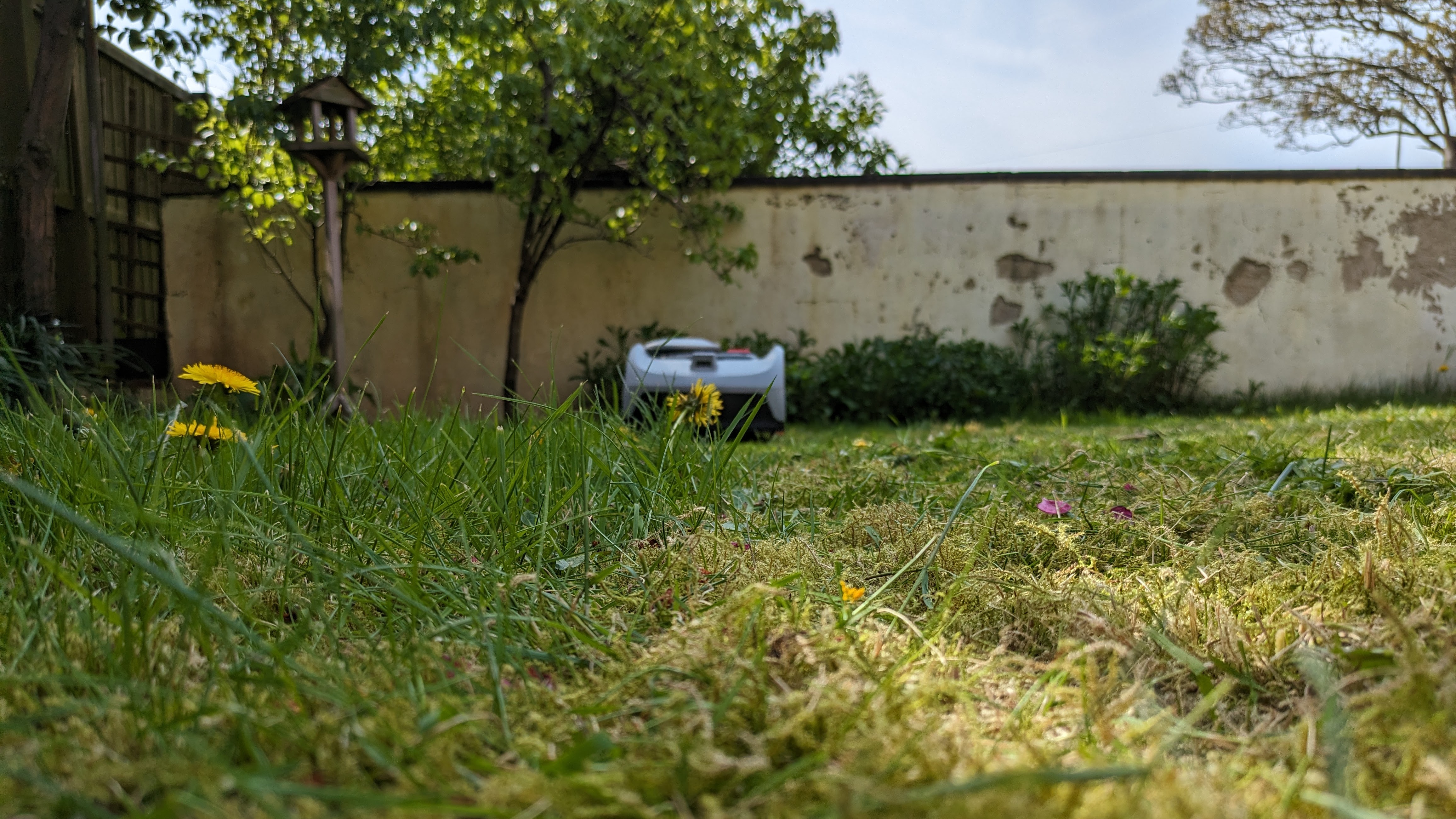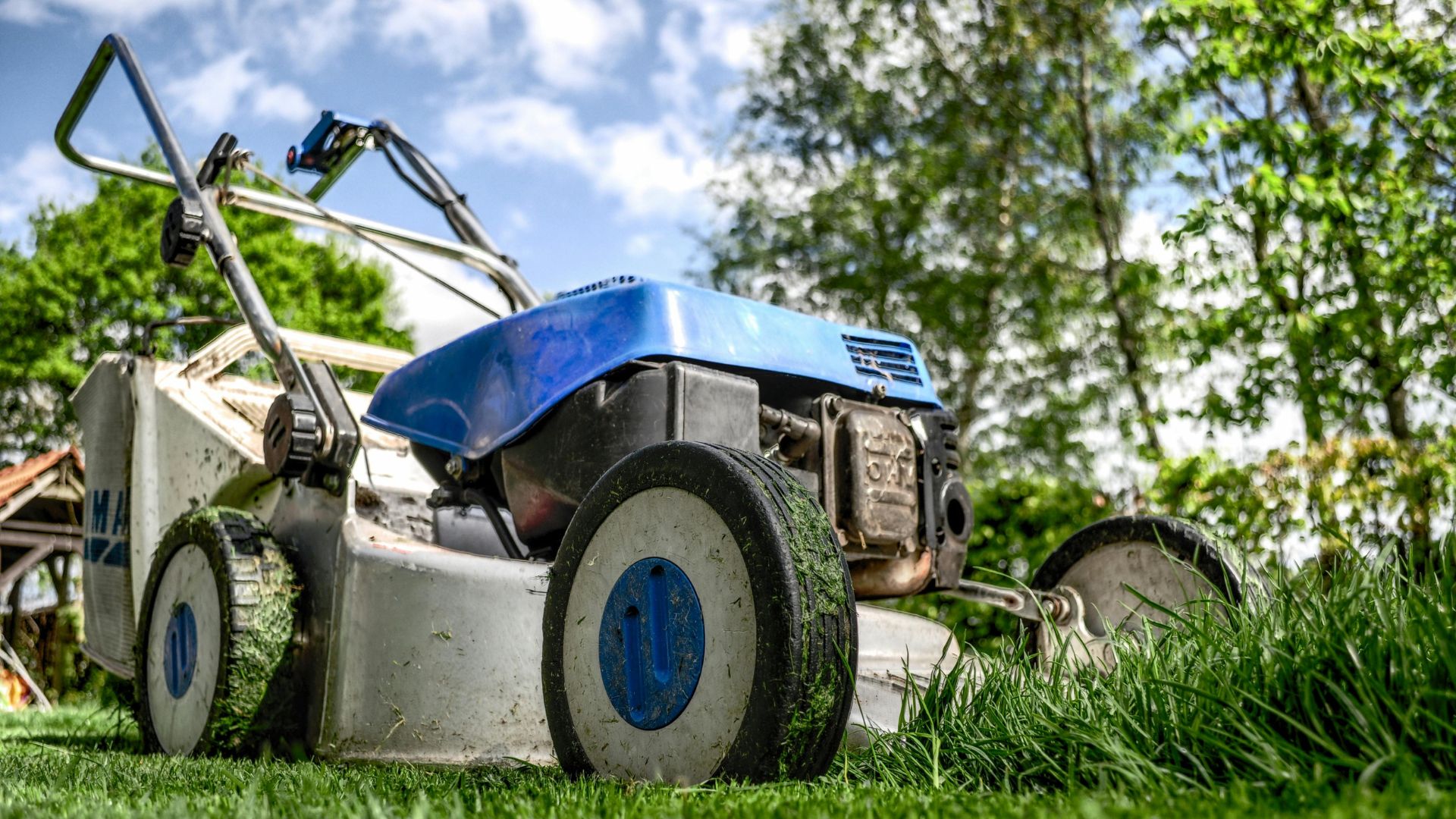
If you want healthy green grass you need to maintain it, and that includes regularly cutting it with the best lawn mowers and using fertilizer to promote growth.
Knowing how to fertilize a lawn is one of the first, and best, ways to achieve lush green grass because it enriches each blade with much-needed nutrients, and helps to keep weeds and moss at bay.
The best fertilizers, which are made from nitrogen, phosphate and potassium, come in one of two forms: granular (dry) or liquid. Which type you need will depend on your personal preference and lawn needs.
We caught up with gardening expert Morris Hankinson from Hope Grove Nurseries to find out what is the best fertilizer for our lawns, as well as other frequently asked questions.
What is the best lawn fertilizer?
Different fertilizers will be better depending on your circumstances, whether you need to overseed a lawn, have recently sown grass seed or want to fix patchy grass.
Morris told Top Ten Reviews: "If you're fertilizing in the spring then a fertilizer with a higher nitrogen ratio would be better. Equally, some fertilizers will be more effective on different types of grass. It's important to understand your lawn/soil and thoroughly research fertilizers before choosing one.
"That being said, I'd suggest avoiding really cheap fertilizers as they usually contain very high levels of nitrogen which can be great in the short-term, but not in the short-term as you want a good balance of nutrients."
This entirely natural granular lawn fertilizer is designed to encourage deep root development. It's nitrogen-rich to help boost early growth, and has Potassium to reduce seasonal stress. This lawn fertilizer is listed by the Organic Materials Review Institute (OMRI) for use in organic production.
This triple action fertilizer from Scotts Turf Builder kills weeds, prevents crabgrass for 4 months and feeds to build thick green lawns. It's ideal for use in Spring or Fall. One bag of 11.31lbs will cover 4,000sq.ft. If you need to cover a larger area, a larger 33.94lbs bag is available.
Suitable for use on new grass or when planting seed, this fertilizer will give your new lawn all the nutrients it needs to grow thicker and quicker. It can be used on any grass type and will cover an area space of 5,000sq.ft. Also available in a larger 42lbs bag.
What are the different types of lawn fertilizer?
There are many different types of fertilizer, and they will contain different ratios of nitrogen, phosphorus and potassium, all of which help with different aspects of lawn health (nitrogen helps with growth, phosphorus helps with root development and potassium helps with disease resistance), Morris told Top Ten Reviews.
"You can also get slow or quick releasing fertilizers. If you want to apply fertilizer for long-term use, I'd suggest using a slow-releasing fertilizer as it takes a few months to release. If you're just topping up your lawn (for example, in the summer to protect from the hot weather), you could use a quick-releasing fertilizer that lasts up to a month.
"Many fertilizers are available as either granules or a liquid, and you can now get organic alternatives to chemical fertilizers, too. There's a lot of choice available when it comes to lawn fertilizing—you need to think about what will work best for you, your lawn and your soil."
When is the best time to use lawn fertilizer?
Morris says you should use fertilizer when you want to improve the health of your lawn, for example to promote growth, root development and protect from diseases. You should also use it when there is limited sun, lots of clouds or once the sun has set, and when the soil is moist (to allow for maximum absorption).
The best time of year is ideally spring, after the last frost, in the summer to protect from hot weather, and in autumn to prepare for the winter months.
You could even use lawn feed on rainy days, as this helps to break down the granules and start the fertilizing process.
Avoid spreading fertilizer on very hot days as the heat can cause the feed to actually burn the grass blades!
When should you not use fertilizer?
You should not use fertilizer if your lawn hasn't been recently mowed (check out our guide to when is the best time to mow the lawn). It's important to cut the grass, remove weeds and properly prepare the lawn before applying fertilizer, says Morris.
"You should also not use it if your soil is very dry as it will struggle to absorb the fertilizer, or too soon after you previously applied it as you can over-fertilize."

How to pick a lawn fertilizer
Choosing a fertilizer really depends on your lawn and your own preferences, says Morris, but there are a few factors to consider. Ask yourself first:
- What do you want to gain from fertilizing: is it for growth, protection or both?
- What time of year is it?
- What type of grass do you have and what is the condition of your soil like?
- When was the last time you fertilized your lawn?
"The type of grass you have can also make a difference when choosing your fertilizer," says Morris. "There are lots of grass species, and they're generally categorised as either cool-season (Fescues and Kentucky Bluegrass) or warm-season grasses (Bermuda grass and St Augustine grass)."
Morris adds: "Fertilizing warm-season grass is usually most effective in spring, and for cool-season grass in the autumn."
What is the best fertilizer for the lawn? FAQs
What fertilizer do professionals use?
Morris says: "Professional landscapers and lawn care specialists will choose fertilizers based on the specific needs of the lawn, so this will vary depending on soil type, grass species, and the time of year.
"Where possible, professionals will opt to use organic fertilizers as opposed to chemical fertilizers because of the environmental benefits. Some of the most popular types of organic fertilizer used by professionals include Hoof & Horn, and Seaweed.
"Some people think 'Weed and Feed' products are good because they do a 2-in-1 job, however professionals will not tend to use these products as it's best to weed your lawn and fertilize it separately. If you try to do both at the same time, it can actually stop the grass seeds from germinating properly."
What do lawn fertilizers contain?
As a general rule, lawn fertilizer contain three primary nutrients:
Nitrogen – An essential building block for new and health grass growth. If the grass looks yellow this indicates low levels of nitrogen and could be a case of lawn rust.
Phosphorus – This encourages a strong grass root system, making the lawn more resilient, especially in dry weather.
Potassium – This helps make grass more durable and hydrated, so it's more resilient to deal with drought and disease.
To maintain your now healthy, green grass you'll need a lawn mower to keep it looking ship-shape and in tip-top condition. Check out our lawn mower deals where you can snag a discounted tractor, zero-turn, robot or push lawn mower throughout the seasons.







